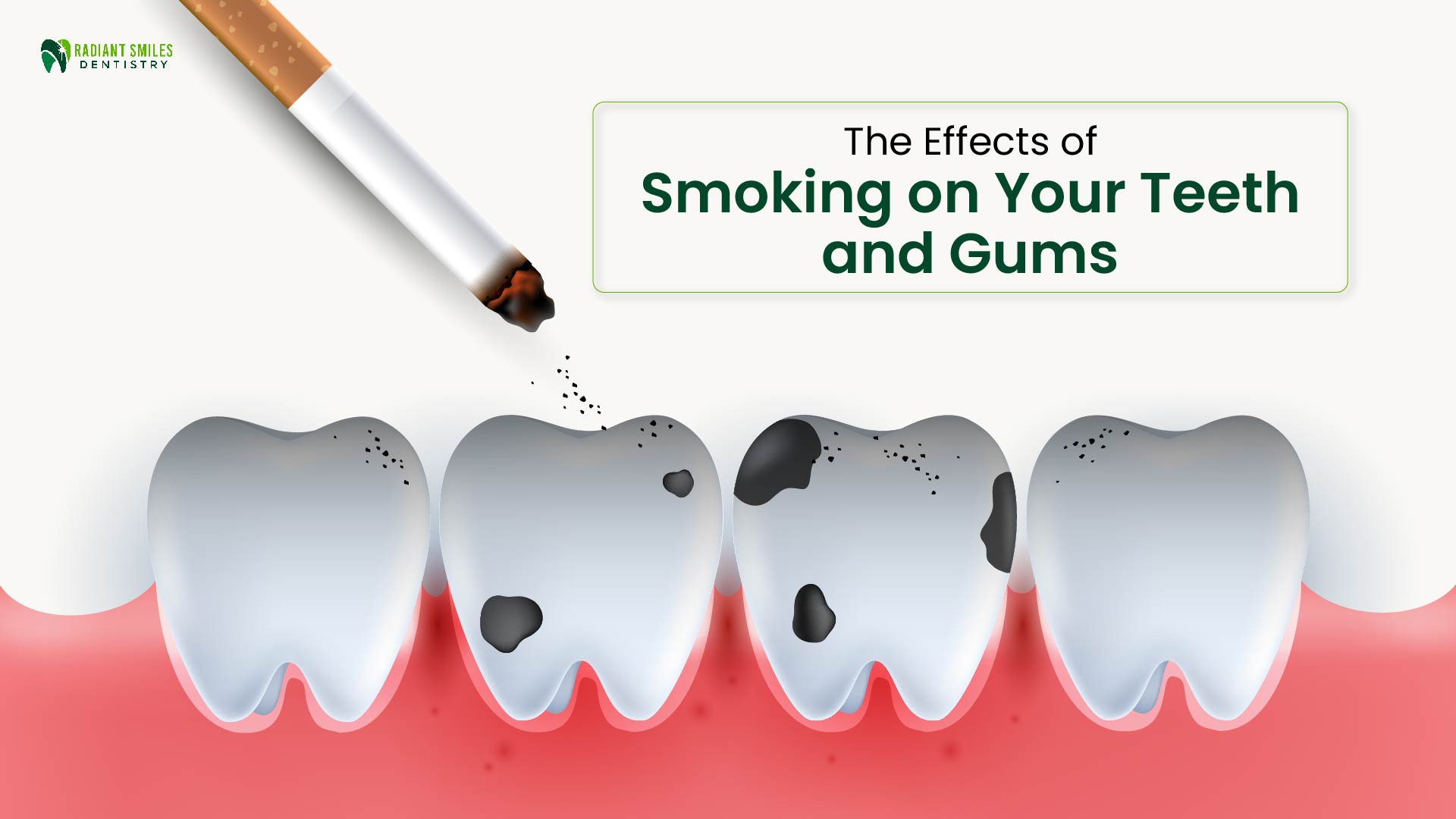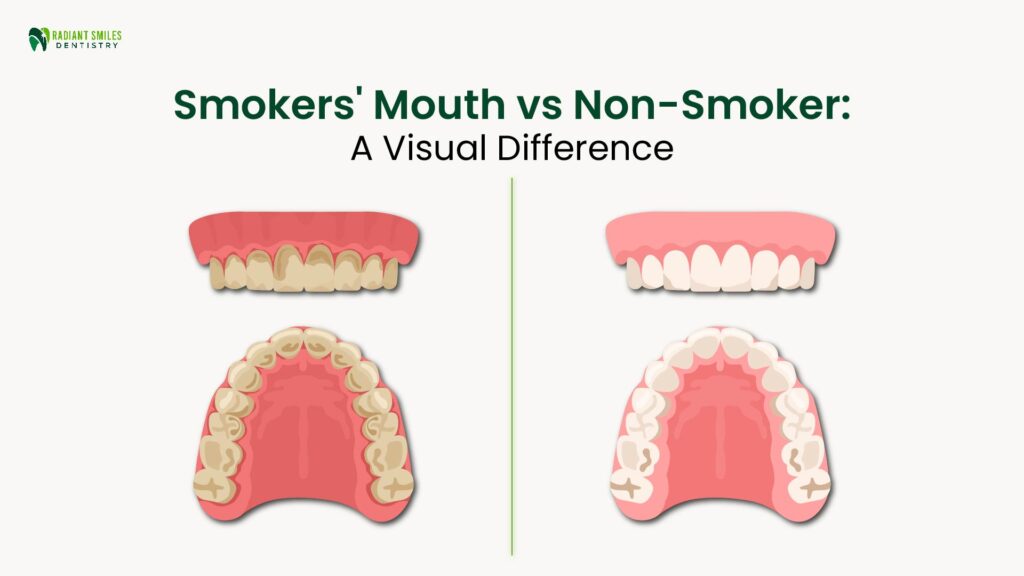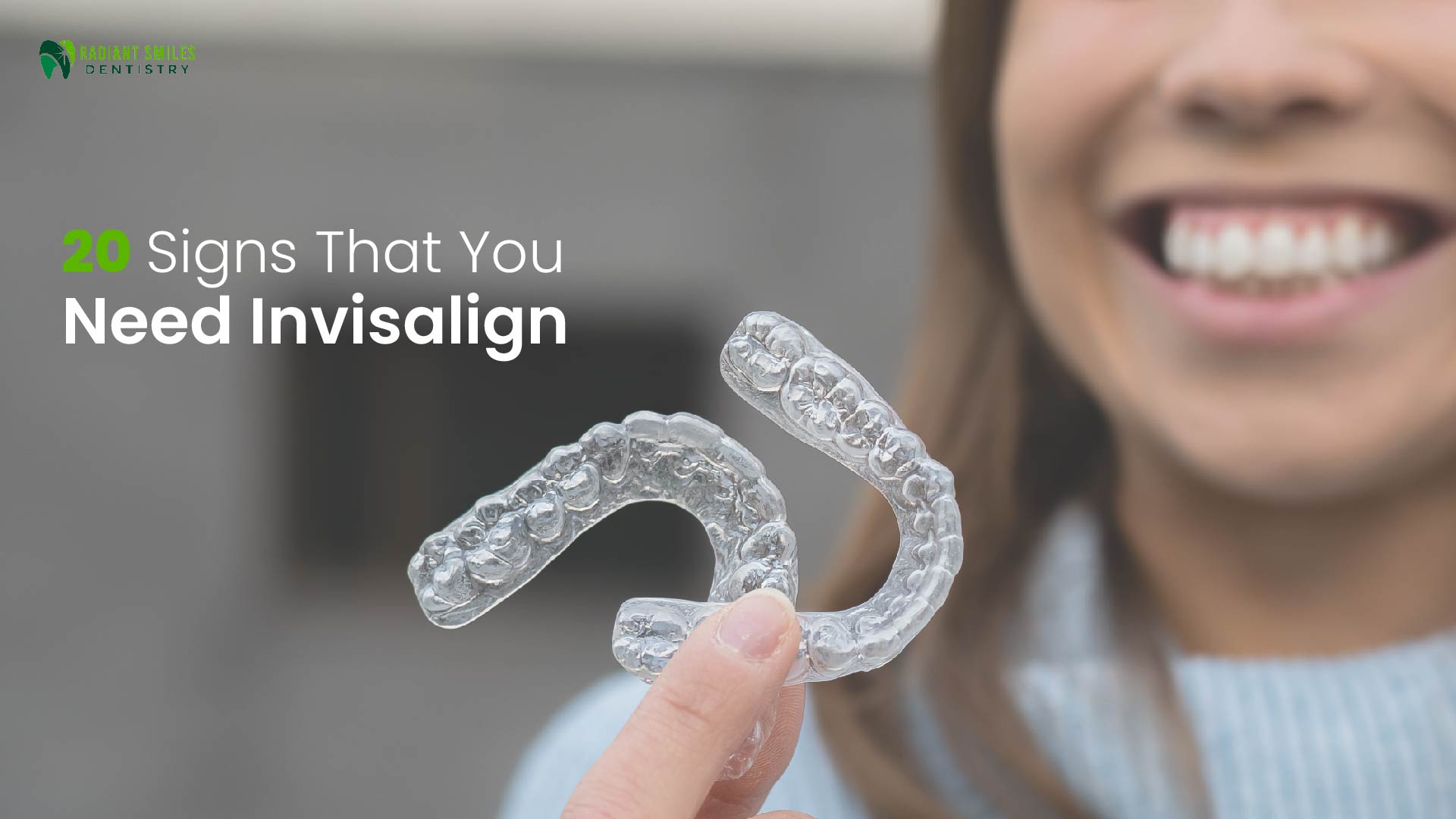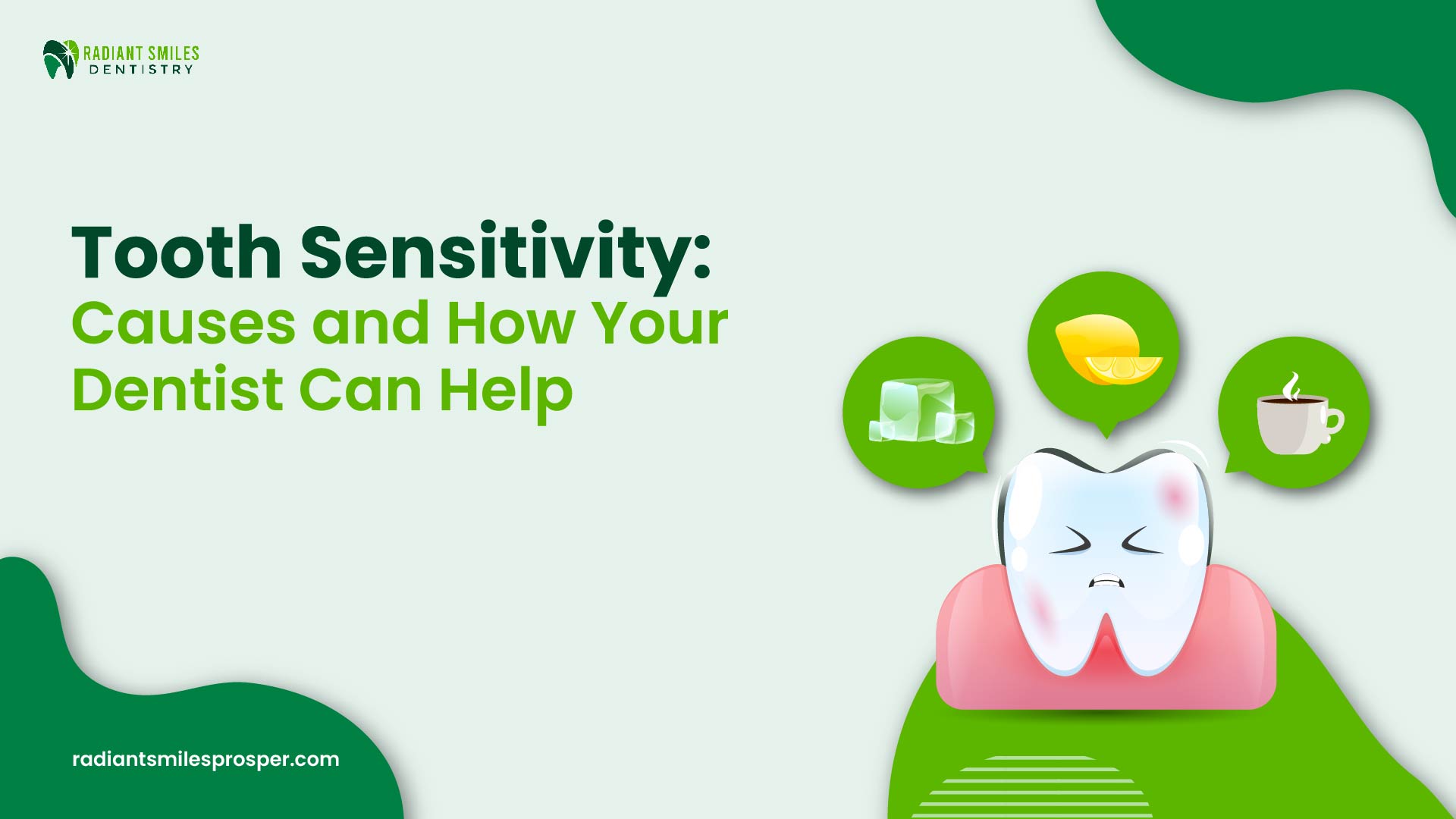Dental veneers are a popular cosmetic option for obtaining a perfect smile,...
The Effects of Smoking on Your Teeth and Gums

Ever wondered what your smile would say if it could talk? For smokers, it might cry out for help. From yellow stains to receding gums, smoking slowly sabotages your oral health in ways you might not even notice until it’s too late. Whether it’s the dull ache of gum disease or the unsettling prospect of tooth loss, the damage is real—and often irreversible. But don’t worry, you’re not alone in this battle. Visiting the best general dentist in Prosper can help you identify the hidden signs early, reverse minor damage, and take steps toward reclaiming a healthier, brighter smile. Let’s dive into how smoking affects your teeth and gums—and what you can do to stop the decline before it’s too late…
How Smoking Affects Oral Health
Smoking introduces harmful chemicals, such as nicotine and tar, into your body. These toxins directly affect your mouth by impairing blood circulation, decreasing oxygen levels, and compromising your immune system’s ability to fight infections. Over time, smoking contributes to the deterioration of both your teeth and gums, leading to long-term complications.
Let’s take a closer look at the most common ways smoking damages oral health.
- Teeth Staining and Discoloration
Nicotine and tar stain the outer layer of teeth, turning them yellow or brown over time. This discoloration affects the appearance of your smile and can only be partially removed through professional teeth whitening treatments. Smokers are more likely to have noticeable stains, which contributes to the “smokers’ mouth vs non-smokers” effect.
- Increased Risk of Gum Disease
Smoking is a leading cause of periodontal disease (gum disease). When harmful substances in cigarettes damage the gum tissue, they create pockets where bacteria can thrive. Over time, this causes gum recession, infections, and bone loss around the teeth.
- Decaying Gum Health
Smokers often have pale, receding gums that bleed less during brushing due to reduced blood flow. This makes it harder to detect early signs of gum disease, leading to delayed treatment and worsening oral health.
- Smoking and Dry Mouth
Cigarette smoke reduces saliva production, causing dry mouth (xerostomia). Saliva is essential in washing away food particles and bacteria, preventing plaque buildup. Without sufficient saliva, smokers are at greater risk of cavities, infections, and foul breath, also known as smokers’ breath.
- Delayed Healing After Dental Procedures
Smoking hinders your body’s ability to heal properly. Whether you undergo tooth extractions, dental implants, or gum treatments, smokers typically experience slower recovery times and are more prone to infections. The reduced oxygen supply to the tissues prolongs healing, making it harder to maintain good oral health after a procedure.
- Risk of Oral Cancer
The toxic chemicals in cigarettes increase the risk of mouth and throat cancer. In fact, smoking effects on mouth and throat statistics show that smokers are significantly more likely to develop cancerous lesions in their gums, lips, tongue, and throat. Regular dental check-ups with the best general dentist in Prosper can help detect early signs of oral cancer, increasing the chances of successful treatment.
- Tooth Loss and Bone Damage
Periodontal disease caused by smoking can eventually lead to tooth loss. As gums recede and bone density decreases, teeth may become loose and fall out. Smokers are twice as likely to lose their teeth compared to non-smokers. Even if teeth are replaced with implants, smokers face higher risks of implant failure due to poor healing and bone deterioration.
Smokers' Mouth vs Non-Smoker: A Visual Difference

Comparing the mouths of smokers and non-smokers reveals significant differences. Non-smokers typically have healthier gums, stronger teeth, and fewer stains. In contrast, smokers’ mouths show clear signs of damage, such as:
- Discolored teeth that range from yellow to brown.
- Receding gums with darkened tissue.
- Persistent bad breath and increased plaque buildup.
- Loose or missing teeth due to untreated gum disease.
Pediatric Oral Health and Secondhand Smoke
If you’re a smoker with children, it’s essential to understand that secondhand smoke also affects their oral health. Exposure to smoke can increase a child’s risk of tooth decay and gum disease. Visiting the best pediatric dentist in Prosper ensures your child receives preventive care and guidance on maintaining good oral hygiene, even in a household with smokers.
Preventive Steps for Smokers
- Brush and Floss Daily: Use fluoride toothpaste and floss regularly to remove plaque and prevent gum infections.
- Visit the Dentist Regularly: Schedule dental check-ups every six months with the best general dentist in Prosper to monitor oral health and detect problems early.
- Use Mouthwash: Antibacterial mouthwashes can help reduce plaque buildup and freshen breath.
- Drink Water Frequently: Staying hydrated can reduce dry mouth and promote saliva production.
- Consider Teeth Whitening Treatments: Professional cleanings and whitening procedures can help manage staining.
When to See a Dentist
If you notice symptoms like persistent bad breath, gum bleeding, loose teeth, or ulcers in your mouth, it’s essential to seek immediate dental care. The best general dentist in Prosper can perform a thorough evaluation and recommend treatments to manage the effects of smoking on your teeth and gums.
Recovery and Quitting: A Path to Better Oral Health
Stopping smoking can dramatically improve your oral health over time. After quitting, blood circulation in the gums improves, helping to heal existing damage. Teeth staining may become less prominent, and the risk of gum disease and oral cancer decreases. Even after years of smoking, it’s never too late to make positive changes and protect your smile.
Conclusion
Smoking has a profound impact on your teeth and gums, causing discoloration, gum disease, and even tooth loss. Regular visits to the best general dentist in Prosper can help manage these issues and detect early signs of serious complications like oral cancer. Whether you’re looking for preventive care or need treatment for gum disease, seeking professional dental care is the key to maintaining a healthy smile.
If you have children, ensure they receive the best care possible by scheduling an appointment with the best pediatric dentist in Prosper to monitor their oral health and address any issues caused by secondhand smoke exposure.
Take Action Today
Don’t let smoking damage your smile any further. Schedule your consultation with the best general dentist in Prosper at Radiant Smiles to receive expert care and personalized treatment options. Whether you need a routine check-up or advanced gum treatment, our team is here to help you achieve a healthier, brighter smile. Call us today and take the first step toward better oral health!
| Recent Blog Post
The Role of Cosmetic Dentistry in Restoring Confidence After Tooth Loss
Dental veneers are a popular cosmetic option for obtaining a perfect smile,...
Tooth Sensitivity: Causes and How Your Dentist Can Help
Dental veneers are a popular cosmetic option for obtaining a perfect smile,...










